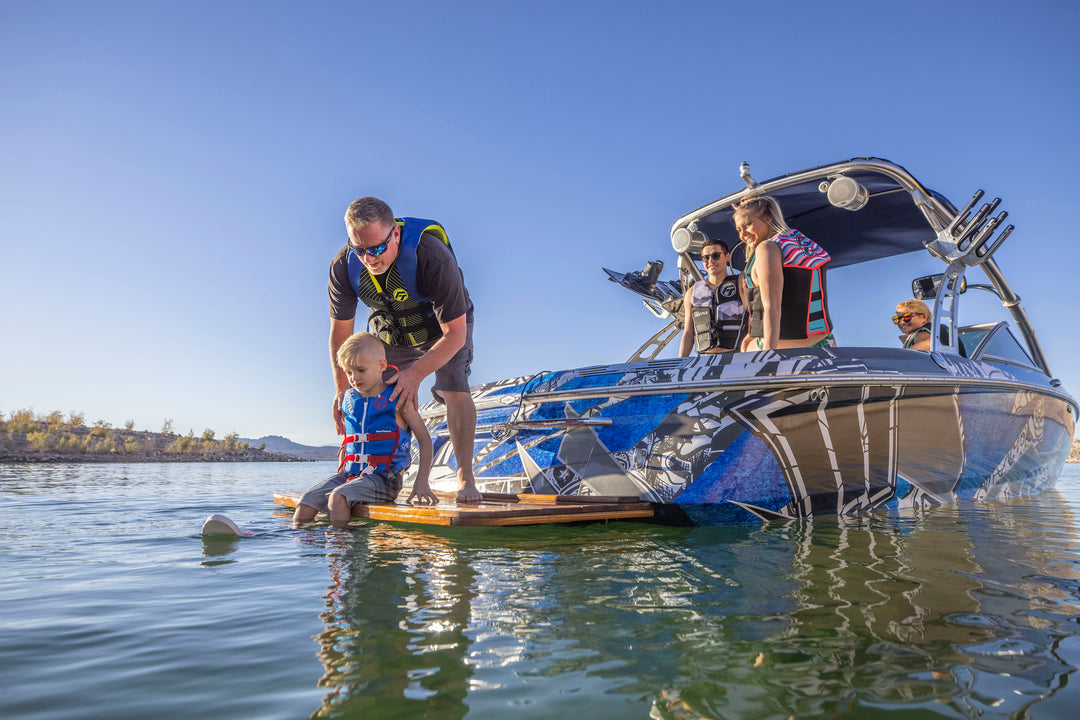National Safe Boating Week!

Summer is in sight, so it’s time to celebrate with National Safe Boating Week! In some places, we’re still waiting patiently for the boating season to start but in many areas, the water is open! It’s now more important than ever to share about boating safety within our communities.
The purpose of National Safe Boating Week is to raise awareness about the importance of safe boating practices and to encourage taking steps to ensure safety while on the water. Full Throttle is committed to fueling the fun for our customers and that includes making sure every water adventure starts with safety.
Here is the full list of Boating Safety Tips in partnership with The National Safe Boating Council.
Wear a life jacket.
No matter what activity you have planned on the water, always remember to wear a life jacket every time you are on the water. Accidents on the water can happen much too quickly to reach and put on a stowed life jacket. Make sure your life jacket is U.S. Coast Guard approved, appropriate for your water activity and fits properly. If your life jacket doesn’t fit properly that can make you susceptible to injury in case an accident were to happen.
Know state boating laws.
Rules and laws can differ from state to state and violations can result in ticketing, fines or jail time. You can learn more at safeboatingcampaign.com.
Take a boating safety course.
Learn valuable tips that can help save your life in unexpected situations by taking a NASBLA (National Association of Boating Law Administrators) approved boating safety course. Many courses are online, and will save you money on your boat insurance.
Make sure your boat is prepared.
There are many items that need to be checked and rechecked on any boat. Schedule a Vessel Safety Check with your local U.S. Coast Guard Auxiliary or U.S. Power Squadrons before you hit the water. Every Vessel Safety Check is conducted 100 percent free of charge. Be sure to know your boat’s capacity. If you have too much on your boat, the boat may become unstable and capsize.
Check the weather, including the water temperature.
Know the latest marine weather forecast prior to going out, and keep a regular check for changing conditions.
Dress properly.
Always dress for the weather, wearing layers if cooler weather, and bring an extra set of clothes in case you get wet.
Always file a float plan.
File a float plan with someone you trust that includes details about the trip, boat, persons, towing or trailer vehicle, communication equipment, and emergency contacts.
Don’t drink while you boat.
Where the primary cause was known, alcohol was listed as a leading factor in boating-related deaths.
Keep in touch.
Communication devices can be the most important piece of emergency equipment on board a vessel, especially in case of emergency. Be sure to have at least two communication devices that work when wet, such as satellite phones, emergency position indicating radio beacons (EPIRB), VHF radios, and personal locator beacons (PLB). And, know how to use it.
By raising awareness about the importance of safe boating practices and promoting education and compliance with regulations, Full Throttle in partnership with the National Safe Boating Week aims to reduce the number of boating-related accidents and fatalities that occur each year in the United States.
Let’s all encourage our friends, neighbors and community to boat responsibly!
